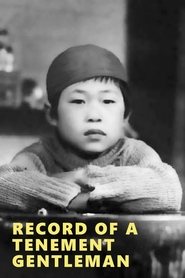Surely I can't be the first to notice that the design of the mattress that Kohei pisses on undeniably looks like the flag of the United States? Put's Late Spring's (1949) famous diamond Coca-Cola sign into some context...
Ozu is not usually seen as a queer filmmaker. [Yet] displays a constitutively queer interest in the family’s strangeness and inevitable dissolution, the difficulty that attends to trying to meet its expectations, the plight of those who find themselves outside its voracious and insistent claims. So he brings us unmarried young women; dying and disappointed parents; ungrateful, disobedient, and disillusioned children—and, as in Record of a Tenement Gentleman, widows.[…]
By bringing a young bedwetting child into a working-class widow’s house, Ozu deconstructs the mother-and-son relationship. In the process, he parodies the whole structure of heterosexual kinship. Whereas the relationships [Ozu] usually explores—however dysfunctional—are those of “real” families, in this film he abstracts the family entirely, creating an almost surreal configuration that stresses the tenuousness of kinship. Neither Otane nor Kohei wanted their relationship. The longer it exists, the more it locks them into a form of dependency. Yet the return of patriarchal authority in the form of the boy’s father at the end of the film crushes even this dubious and unequal emotional connection.
— Musab Younis (Criterion)
As Supreme Commander for the Allied Powers during the occupation, General Douglas MacArthur initially oversaw the destruction of all Japanese military equipment, the “trials” of thousands of official war criminals, hundreds of executions, and the drafting of the “MacArthur Constitution” which replaced the 1889 Constitution drafted by the Meiji government. MacArthur also tried to order the removal of the Saigo statue from the park on the grounds of its nationalistic associations. The Japanese people refused to allow it to be taken away. When we watch the final shots of this statue in that context, they evoke a profoundly Japanese solidarity, indicating a country not truly defeated, picking up the pieces, during an occupation not even shown on screen.
— Michael Price (Senses of Cinema)

